In the heart of Korea's culinary landscape, a gradual but steady transformation is taking place—one that extends beyond the palates of the vegan community.
The Korean vegan dining scene, once confined to niche corners, is blossoming into a culinary culture.
What was once seen as a mere substitute has now evolved into an exciting tasting journey that beckons not only vegans but food enthusiasts from all walks of life.
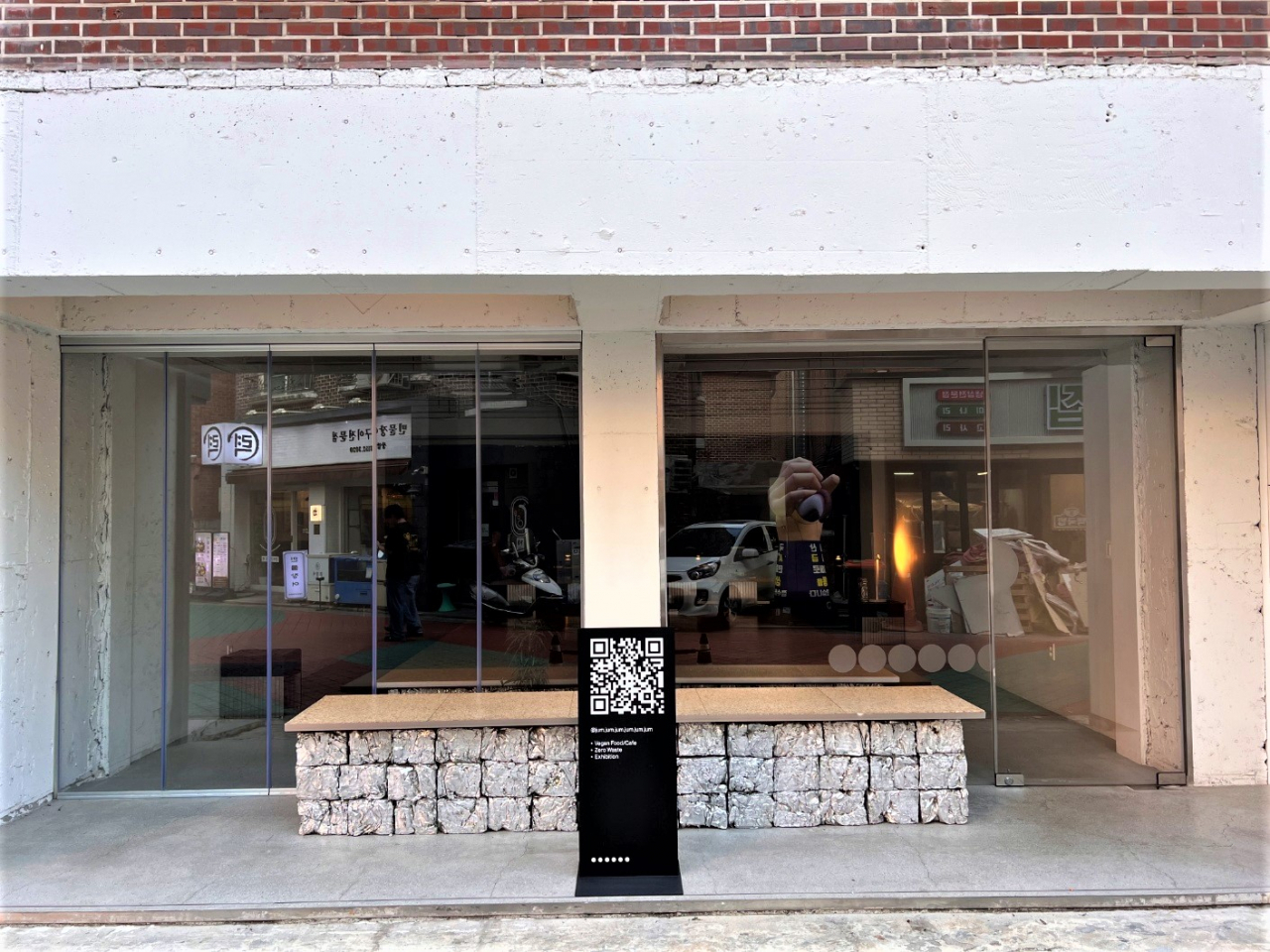
Standing at the vanguard of this paradigm shift is "Jumjumjumjumjumjum," a vegan establishment located in the Sangam-dong district of northern Seoul. Since its opening in March last year, the restaurant has been exploring innovative interpretations of traditional Korean flavors using contemporary culinary techniques. Surprisingly, over 80 percent of its patrons are non-vegetarians -- a testament to the restaurant's mission to offer a gastronomic adventure that tantalizes taste buds and to be acknowledged as more than just plant-based nourishment.
Upon entering the restaurant, visitors are greeted by an ambiance reminiscent of a modern gallery.
Infused with a serene zen aura and subdued lighting, the expansive space is filled with ambient music, and the seating is carefully segmented to create isolated dining islands for guests.
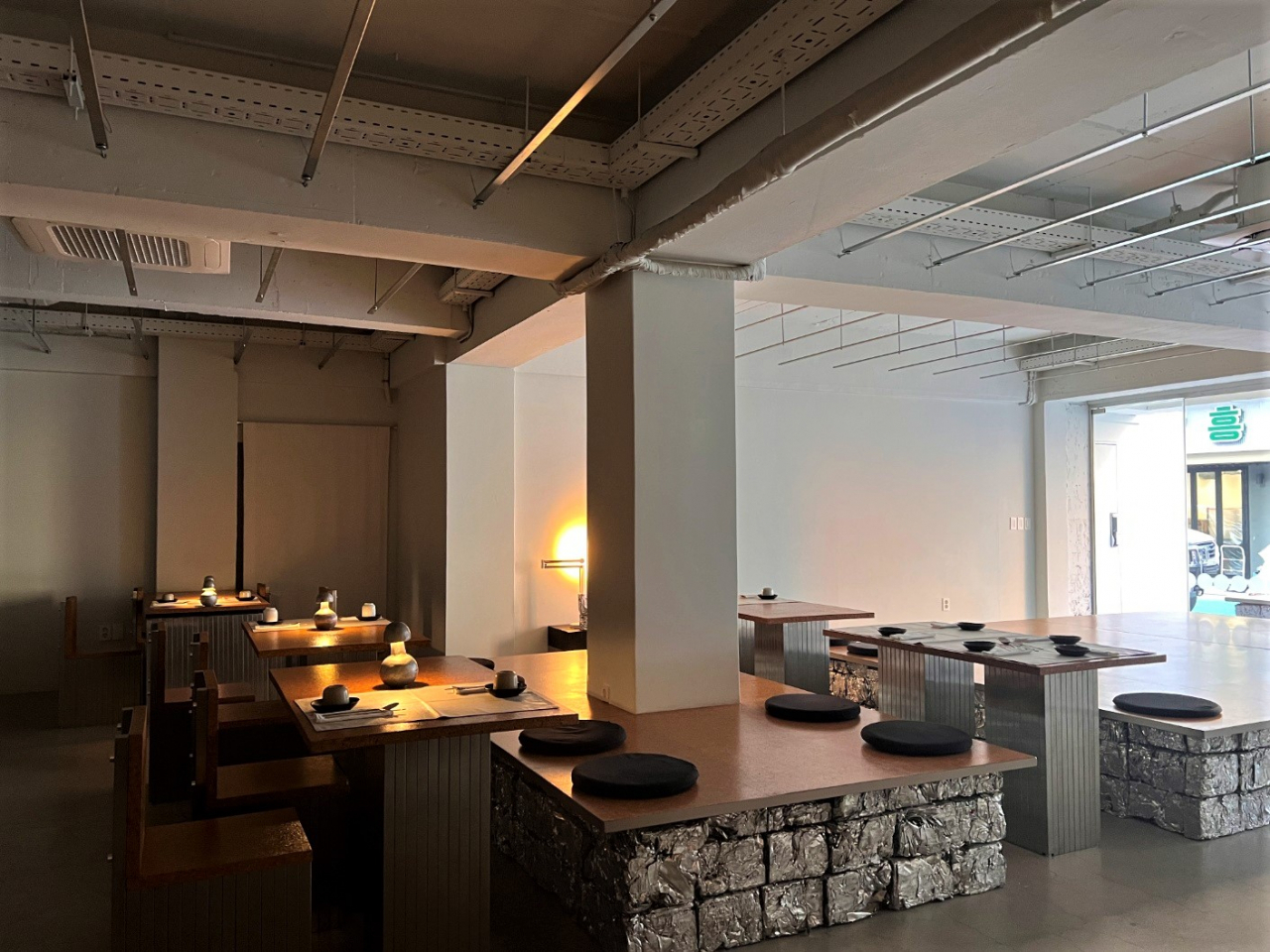
Many aspects of the restaurant's interior, from table lamps to chairs and walls, are meticulously crafted from recycled materials. The restaurant has set up reusable hand cloths on dining tables, instead of conventional paper napkins, a conscious choice that reflects the restaurant's commitment to sustainable practices.
"We aim for veganism to be an all-encompassing experience, inviting guests to engage thoughtfully, as our restaurant's very name suggests," Choi Yun-ki, head chef at the restaurant, told The Korea Herald. "The more you contemplate on the moment, even when you are enjoying a meal, the experience becomes yours."
As opposed to typical vegan restaurants in Korea that opt for wooden elements and warm-toned lighting, the restaurant deliberately departs from convention. "Our intention is to challenge preconceived notions about vegan spaces, even if it might feel slightly unfamiliar to newcomers," the chef said.
Both lunch and dinner comprise of a three-course meal, with each course featuring two different dishes.
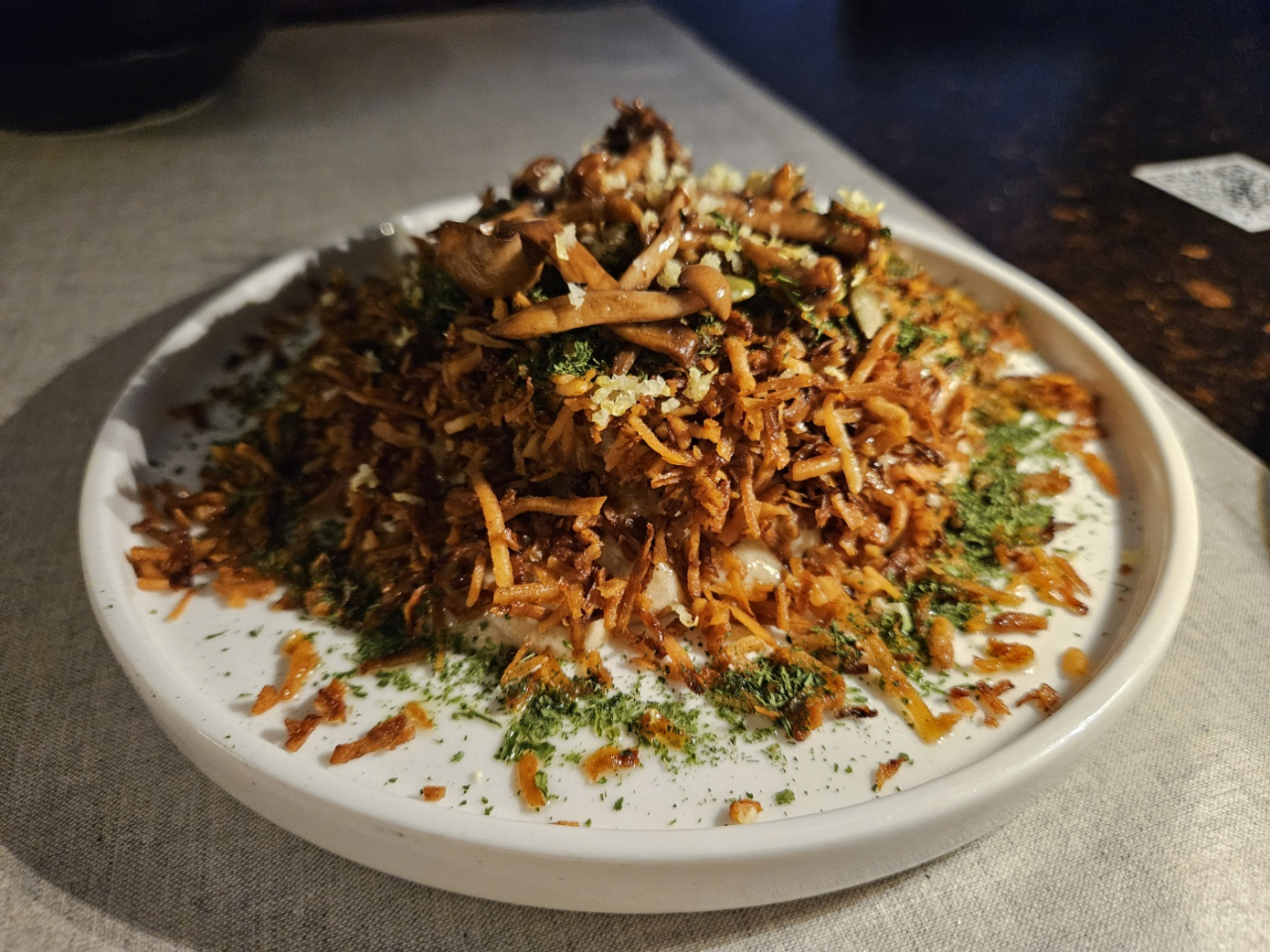
For the appetizer, a three-part pickled salad is presented, incorporating cabbage, apple and mushrooms. Each ingredient is treated differently during the pickling process. The salad is garnished with coconut, lemon peels and roasted pumpkin seeds.
Accompanying the salad is a chilled sea pasta dish prepared with conchiglie, also known as seashell-shaped pasta.
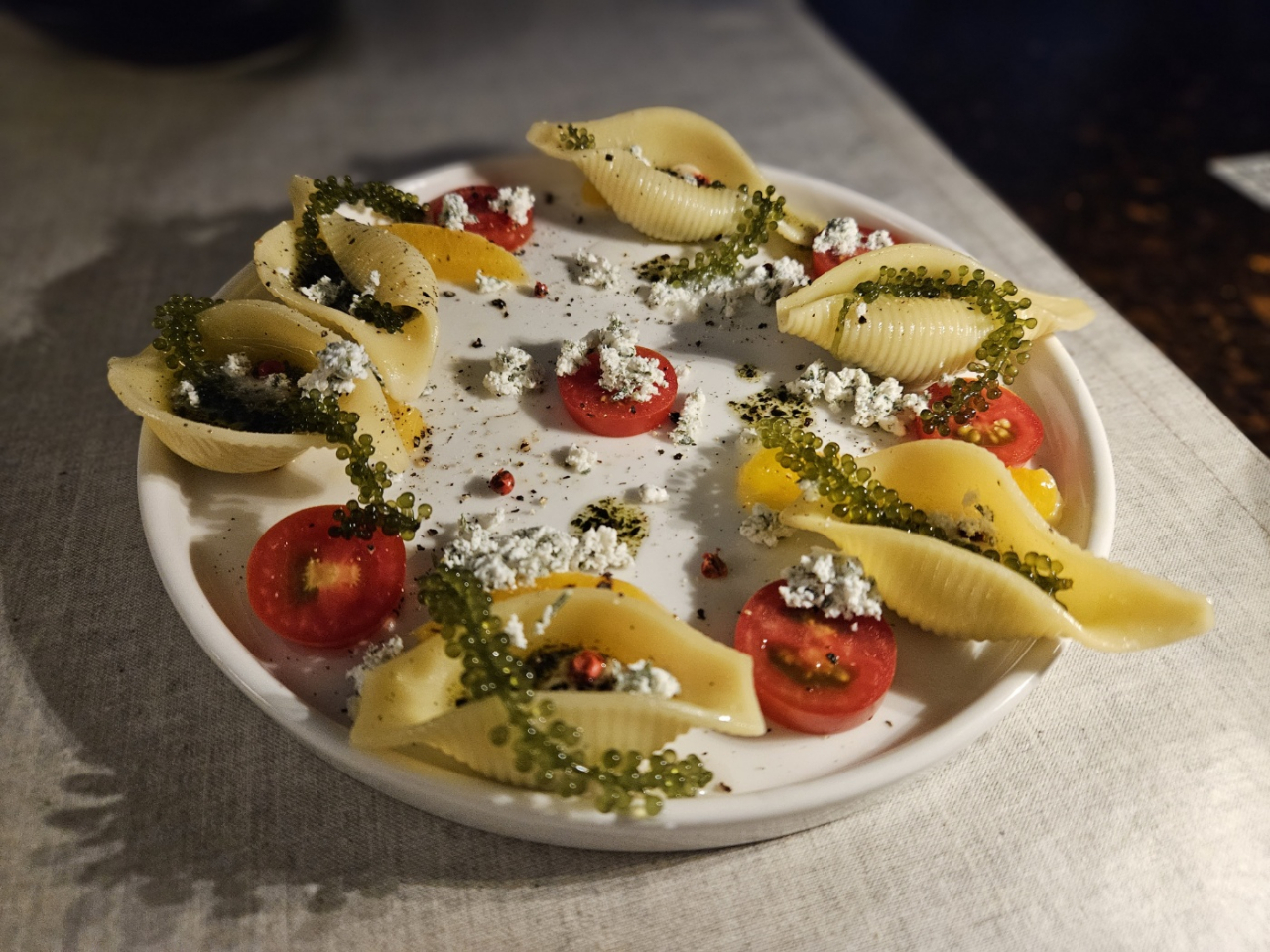
The shells are filled with sauces made in-house, while tomato and pickled oranges are set on the side, offering a harmonious blend of flavors. The interplay between freshness and a sweet-and-sour tanginess makes it an ideal opening course.
Moving to the main course, guests are served grilled green onion and braised tofu alongside shiitake mushroom thistle rice.
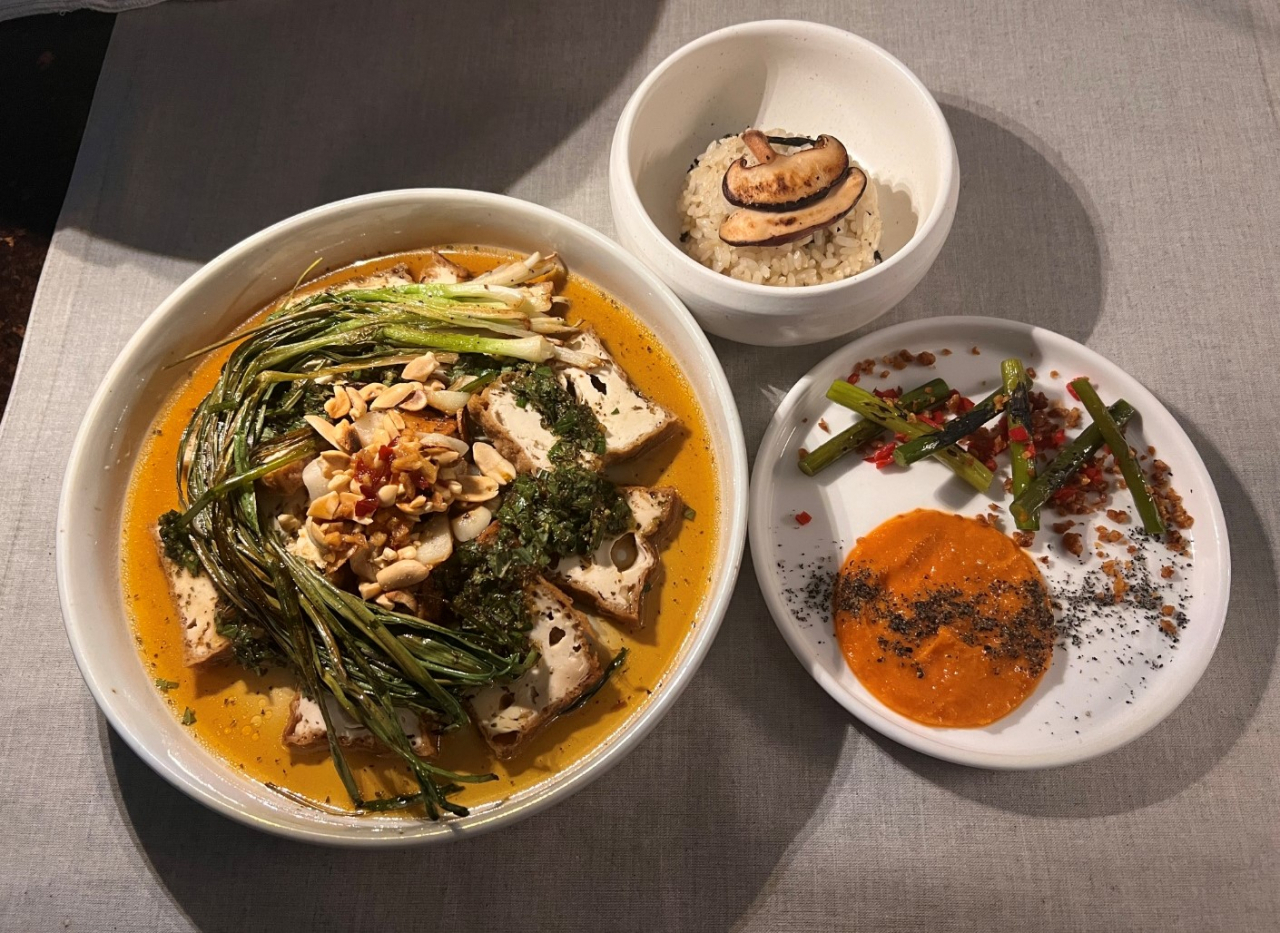
The green onions are grilled using handmade vegan butter, while the tofu is braised in soy sauce, and then chilled.
A layer of chili oil and perilla basil sauce give an additional dimension to the earthy scent of tofu.
The bowl of thistle rice is accompanied by a distinctive carrot puree and stir-fried garlic stems on the side.
"All our seasonings, including salt and oil, are prepared in-house," Choi emphasized. The chef goes the extra mile in refining the cooking processes to achieve a diverse array of flavors. For instance, Choi explained that chefs dedicate two hours daily solely to the boiling stage of the tofu.
This meticulous attention to detail ensures that the soy sauce infuses the tofu with a delicate and distinct sweetness, just moments before the sauce reaches the brink of burning. "We've undergone numerous trials and errors to pinpoint that precise moment for the optimal taste experience. I hope our guests can sense the dedication reflected in the dishes."
The final offerings consist of an arugula kimchijeon and vegetable bibim noodles. The pancake is crafted from kimchi and adorned with arugula, almonds and a dusting of vegan parmesan powder. Oven-roasted vegetables and buckwheat noodles are presented in a delicate bowl, with the base layer featuring chives and special seasoned sauce.
The restaurant's culinary team continually explores and experiments with traditional Korean dishes to identify ingredients and cooking techniques that align with the vegan ethos.
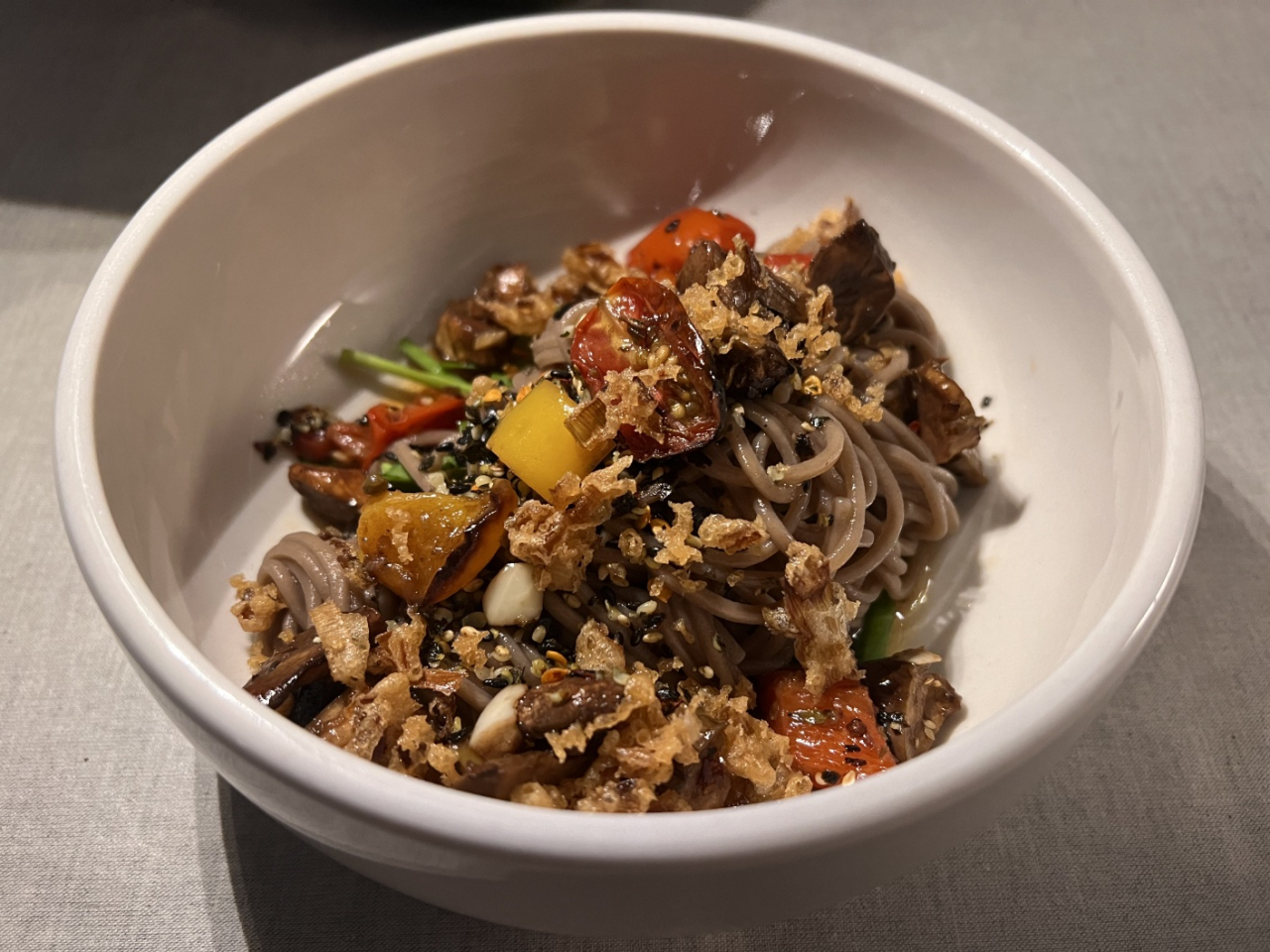
Instead of setting up a fixed date for menu changes, when the cooling winds of winter or the warming rays of the sun comes, the restaurant reveals its new vegan creations as surprise. "We hope our returning guests can experience a sense of anticipation with the changing seasons." Choi said.
The full dining experience typically spans around 90 minutes. Reservations are strongly recommended, as walk-in availability is fully based on cancellations.
Both lunch and dinner are priced at a fixed rate of 30,000 won.



















